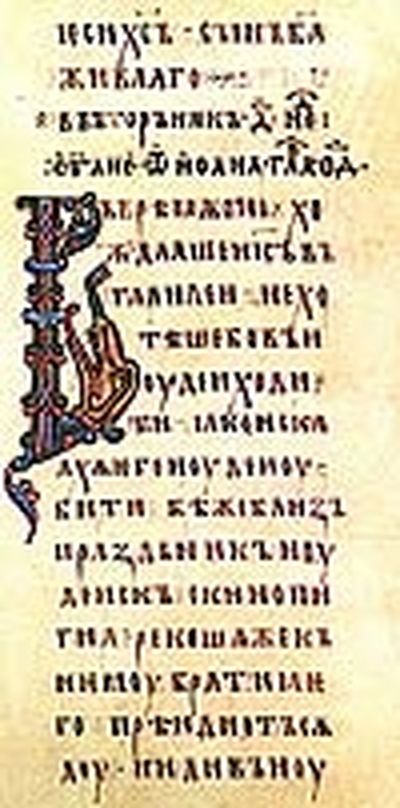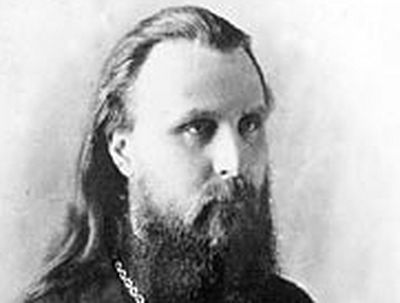SOURCE: Patheos
By Ryan Adams

What it is:
Sola Scriptura is the idea that Christianity ought to be based off of “Scripture Alone” (which is the English translation of “Sola Scriptura”), that is to say, it should be without ritual, or the teaching authority of anyone. And that each of us is obligated to read the Scriptures and form ourselves through them, on our own.
It Can’t Really Exist:
Many of the things we are afraid of do not exist. Zombies, Armageddon cults (the kind who bring on the end of the world via some long-forgotten Egyptian deity), Cthulhu, and so on, are all prime examples of thing which are scary, but don’t really exist.
This is how I feel about Sola Scriptura. It’s frightening, but in reality it doesn’t exist.
It would seem a little ridiculous to say that it doesn’t exist; being that it’s the staple doctrine of nearly all Protestants. However, that’s just the point… it’s a doctrine. It’s already going against itself, erasing itself from the realm of possibility by its own action. A doctrine (not scripture) which proclaims that all doctrine are to be rejected is ludicrous (A harkening back to the, now terribly clichéd, argument against relativism). It simply isn’t possible to have Scripture alone, since you didn’t receive Scripture alone. Instead, all of us were taught about Scripture by someone else. It didn’t just fall out of the sky and land on us. And even if it did, it’s still given to us by someone, the authors who had lives, cultures, rituals, and all number of things which provide a context for the Scriptures. And context means that Scripture is by no means “alone.”
If It Does Exist, It’s an Autobiography:
All this talk of texts, context, authorship and interpretation reminds me of a certain Frenchman…
Anyways, there’s a serious problem which arises from the relentlessly individualistic model of Biblical interpretation. Whenever anyone begins their own interpretation of anything, without direction, they form a sort of autobiography in their interpretation. Interpretation of this sort reflects nothing but oneself.
This is a main idea of that certain Frenchman (philosopher Jacques Derrida), that whenever one interprets a text without context, one is simply painting a self-portrait with the colors of the text they are interpreting. This is because pure ideas do not simply pass from one person to another, instead they must pass through the filtration of language, which is passed further through the schema of one’s consciousness which allows one to make sense of things. This schema is built, in part, by the social, historical, political, etc, context in which we live, making it impossible to avoid unless we allow our understanding to be mapped by another context. If this contextual misreading and subsequent autobiography is turned upon the Scriptures, then I can think of no more grievous blasphemy than to make the Scriptures, which are supposed to be the image and fulfillment, the Word of God, into nothing more than an autobiography.
To deform God into an image of yourself is idolatry itself; a golden calf of proudly defended misinterpretation.
It Isn’t Biblical:
Nowhere in the Bible will you find any discussion of the Bible or how to interpret the Bible. Both the New and Old Testament will make reference to “the Scriptures,” but this does not refer to the Bible as a whole, only the Old Testament.
2 Thessalonians 2:15 makes it clear that there is a decisively important element of tradition and that much was taught by word of mouth. The separation between what has been taught by word of mouth and what has been relayed by the epistles (which are letters by bishops/Apostles) means that not everything which was important to know was recorded in the epistles.
Furthermore, the New Testament makes it clear that the Apostles (and in the First Letter to Timothy, bishops) are the bearers of the teaching of Christ, and that it is their duty to protect those teachings, and to instruct those of the faith in these teachings. Also made abundantly clear is the fact that anyone’s interpretation of the teachings of Christ is not as good as anyone else’s, were this true, there would have been no need for Paul’s letters, or really any of the New Testament aside from the Gospels.
What About History(?):
As I’ve already mentioned, the concept of Scripture Alone rejects a basic fact of the Scriptures; that they were written by men. While I do believe that they were inspired by the Holy Spirit, and kept free of error by the Holy Spirit, it doesn’t change the fact that people wrote these books, and as such, they are full of context (historical situation, cultural practices, societal expectations, and (perhaps most importantly) language and idiom). Without knowledge of the history and culture of the human authors of the Scriptures, one can have no hope of understanding what they are trying to communicate.
This is not even to mention the fact that the Bible itself (especially the New Testament) is a book with a lot of historical movement. The early Church (in the time of the Apostles) did not have the books of the New Testament (mostly since they were still being written), and it wasn’t until many generations later that these books were codified and the canon was created. The Church spent the bulk of its early life without these New Testament scriptures, thus, Sola Scriptura is historically speaking a fairly new idea (it’s hard to preach “Scripture Alone” when you don’t yet have Scriptures…).
What’s more is that this ideal of “Scripture Alone” rejects the whole of Christianity which has come before the individual Christian. It rejects the history of the Church and the great teachers of the faith (and when it doesn’t, it doesn’t uphold its own values.)
Pride:
All of this culminates in my reason for rejecting Sola Scriptura (and thus Protestantism); pride.
I am perhaps one of the worst offenders when it comes to this particular sin, so I place no judgment on those who fall into it; however this doesn’t mean that even I, the worst among the prideful, should sit by and allow my pride to become dogma. Rather, we should always struggle against our sins.
The pride of Sola Scriptura, if it is even possible, is in its rejection of those who have taught us: our parents, our preachers/priests/teachers, the history of the Church (the saints, the councils, the Fathers), and through this, even the Apostles, those who learned everything directly from the mouth of Christ himself; in favor of a vain autobiography of self-interpretation. A self-portrait painted with the colors of the Gospel.
This is obvious the worst case scenario of the doctrine, but this is the result of it’s actually being followed. Even the most well-meaning person who takes the “Scripture Alone” seriously will be nothing more than an arm chair theologian, someone who is completely ignorant of the period and context of the texts written and so instead is forced to put their own context and period in as a stand in. Thus the self-portrait appears again, even when the believer is well-meaning and pious in their practice. In this, Scripture Alone is again found impossible, as it’s no longer “Scripture Alone,” but rather it is “Scripture and Me.”
This is why Sola Scriptura frightens me. I am full of sin: failings and misgivings and bias. As such I much prefer “Scripture and Tradition,” to “Scripture and Me.”



